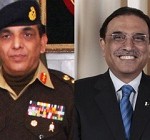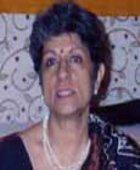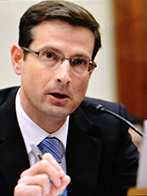The civil-military equation in Pakistan has begun to tilt in favour of civilians
- No(56%)
- Yes(44%)
Representing the sides
Against the motion
Ambassador Neelam Deo
Director and co-founder, Gateway House: Indian Council on Global Relations
A distinguished diplomat, Neelam has been the Indian Ambassador to Denmark and Ivory Coast with concurrent accreditation to several West African countries. Read more.
For the motion
Daniel Markey
Senior Fellow for India, Pakistan, and South Asia, Council on Foreign Relations
Daniel Markey is senior fellow for India, Pakistan, and South Asia at the Council on Foreign Relations (CFR), where he specializes in security and governance issues in South Asia. Read more.
Against the motion
There is satisfaction that the first ever elected government in Pakistan has successfully completed its full term, 66 years after the country came into being and another election is forthcoming. Does this transition also mean that the military, which has ruled in Pakistan for half its existence, has become less powerful than politicians? Read the full opening remarks here.
Doubtless things are changing in Pakistan. Uncertainty, however, relates to the depth and longevity of the changes. It often resembles a one-step-forward-and-two-steps-backwards process rather than a move up to the next level. Read the full rebuttal here.
It would be encouraging to be able to agree with Mr. Markey that ‘the rise of violent civilian extremists working to bring down the state, democratic or otherwise, is a frightening manifestation of the waning power of the military’ because it would be a sign of Pakistan becoming a country addressing its problems of terrorism and the militarisation of its society.
But we know that extremists first created by the Pakistan military and the ISI in the 1980’s to fight the Soviet Union in Afghanistan and then nurtured to fight India through terrorist activities especially in Jammu and Kashmir, continue to wreak destruction, not least within Pakistan. Read the full closing remarks here.
For the motion
This week, Pakistan will pass a milestone in the gradual process of consolidating civilian democracy. For the first time in the nation’s history, voters will elect a new government to succeed a civilian administration that served its full five-year term. Opinion polls suggest that the vote will bring a peaceful alternation of power from the ruling coalition to the opposition party led by Nawaz Sharif. Read the full opening remarks here.
Ambassador Deo is correct that Pakistan’s military still has a great deal to say about foreign and defense policy. This is a troubling hangover from decades of military rule. It does not, however, negate the emerging reality that Pakistan’s overall power equation has begun to tilt in favor of civilians. Read the full rebuttal here.
Analysts often portray the central political drama in Pakistan as a morality play between the“evil” military and “good” civilians. In so doing, they leap to the conclusion that Pakistan will undoubtedly benefit if the balance of power tips in the civilians’ favour.
In this debate, I have presented evidence of the waning power of the military, but I have also argued that the trend is disruptive; that is, it has the potential to benefit a wide array of civilian forces, some committed to democracy, others to civilian authoritarianism, and still others to criminality and violence. To decide whether the rising power of Pakistan’s civilians will be a net force for good, we must also ask which civilians stand to gain most and how they intend to use their newfound power. Read the full closing remarks here.
© Copyright 2013 Gateway House: Indian Council on Global Relations. All rights reserved. Any unauthorized copying or reproduction is strictly prohibited.




